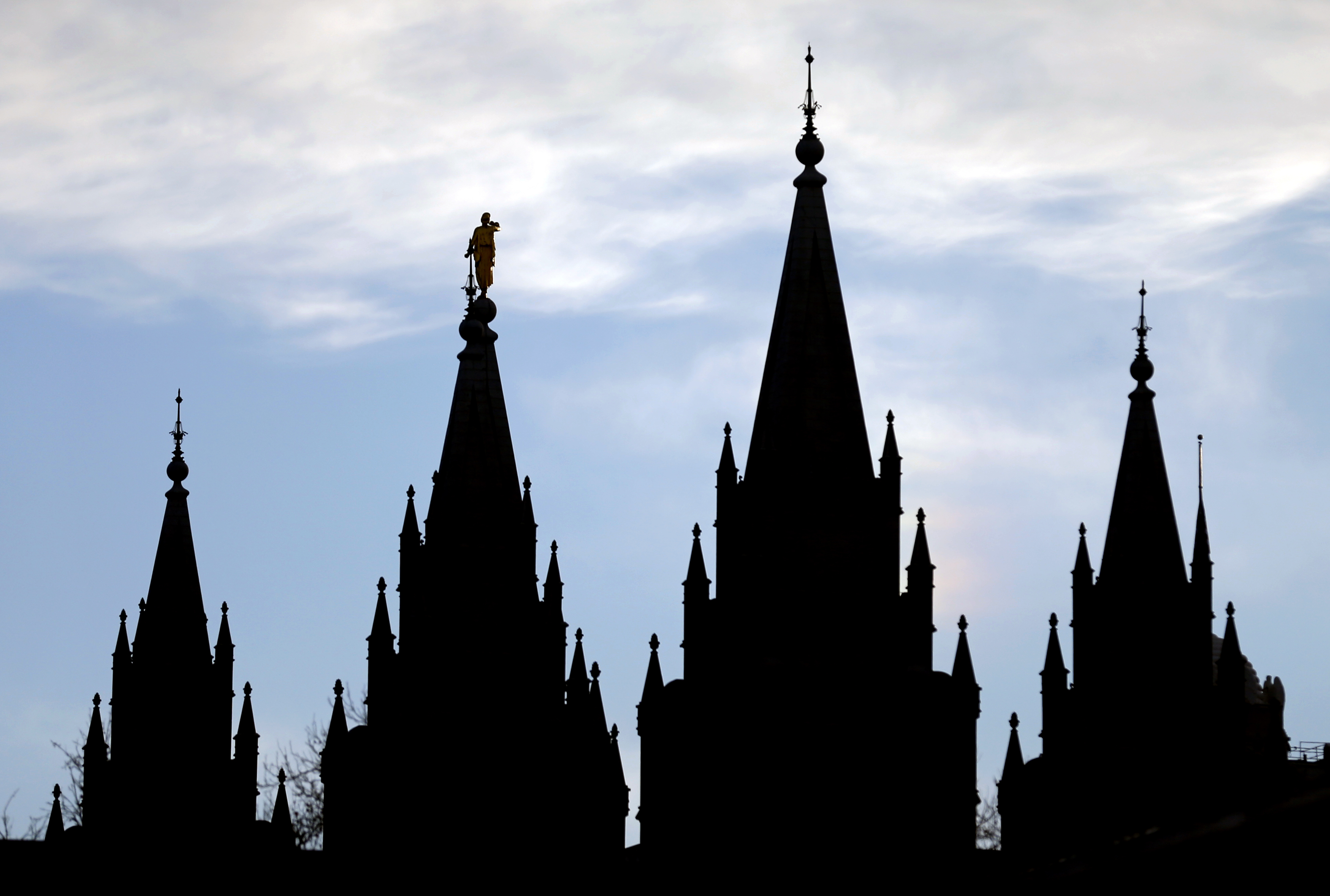
Mormon church says it's not opposed to hate-crime bill
SALT LAKE CITY (AP) — The Mormon church said Thursday it doesn’t oppose hate-crimes legislation in Utah that includes protections for LGBT people, an announcement that could break a longtime legislative logjam on the issue.
The Church of Jesus Christ of Latter-day Saints’ sought to clarify that it has not actively been blocking hate crimes legislation and will not stand in the way if lawmakers take up the issue this year, said Marty Stephens, the faith’s director of government and community relations and a lobbyist for the church.
“The LDS church has been a victim of hate crimes over the years and we understand the importance of this,” Stephens said. “All men and women are God’s sons and daughters and we think they should be treated with civility and respect, and that no group should be targeted for crime based on membership in that group.”
Utah has a hate-crime law, but the 1990s-era measure doesn’t protect specific groups and prosecutors have said it’s essentially unusable. Efforts to beef up the law have failed in recent years after the church said the proposal would upset a balance between religious and LGBT rights, according to supporters of the changes.
All but five states in the U.S. have hate crime laws; Utah is one of 15 that have such laws that don’t cover anti-LGBT-crimes, according to the Human Rights Campaign.
“This is definitely a game changer,” said Troy Williams, executive-director of the LGBTQ-rights group Equality Utah. “Latter-day Saints and LGBT people both know what it’s like to be the victims of hate and violence. It’s a logical extension that we can all work together and pass a bill that protects all people.”
Mormons have long been the dominant religion in the state, with an estimated 62 percent of residents belonging to the faith. At the state Legislature, Mormons account for 91 of 104 lawmakers, according to a recent Salt Lake Tribune report.
Republican Utah state Sen. Daniel Thatcher is sponsoring hate crimes legislation again this year, and said the church’s statement makes a “night and day” difference in the chances it will get a hearing for the first time since 2016.
“If you do not make a statement there are more than enough people who are happy to speak on your behalf, and people were doing just that,” he said.
Gov. Gary Herbert, a fellow Republican, said Thursday that beefing up Utah’s hate-crimes law is “certainly worthy of discussion and debate.” He said the church’s position might not change every lawmaker’s mind, but it “can’t hurt the possibilities.”
The December beating of a young Latino man and his father at their Salt Lake City tire shop by an attacker who told police he targeted them because they were Mexican brought new criticism of the state’s hate crime law. Salt Lake County Attorney District Attorney Sim Gill said he couldn’t charge the suspect with a hate crime because of shortcomings with the law.
Mormon officials have routinely declined to publicly discuss the state’s hate crimes legislation.
Stephens called it a misconception that the church has opposed recent hate crimes legislation. He said the faith only requested a one-year moratorium on hate crimes discussions in 2016 to allow a church-backed anti-discrimination law passed the year before time to go into effect.
That law that made it illegal to base employment and housing decisions on sexual orientation or gender identity and also included religious protections. Gay-rights advocates had tried for years to pass similar legislation but only succeeded when the religion backed the measure.
The new church stance seems to fit with the faith’s efforts in recent years to stake out a more welcoming stance to LGBTQ people while sticking with fundamental opposition to same-sex marriage and homosexual relationships. But Stephens declined to discuss it in those terms.
“I don’t view this as a change,” Stephens said. “It is just a clarification so people know clearly that it’s not something we’re opposed to.”
The Western Journal has not reviewed this Associated Press story prior to publication. Therefore, it may contain editorial bias or may in some other way not meet our normal editorial standards. It is provided to our readers as a service from The Western Journal.
Truth and Accuracy
We are committed to truth and accuracy in all of our journalism. Read our editorial standards.
Advertise with The Western Journal and reach millions of highly engaged readers, while supporting our work. Advertise Today.












